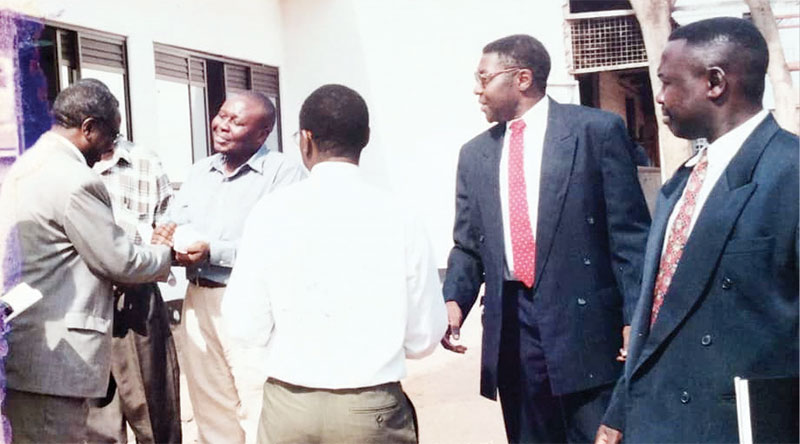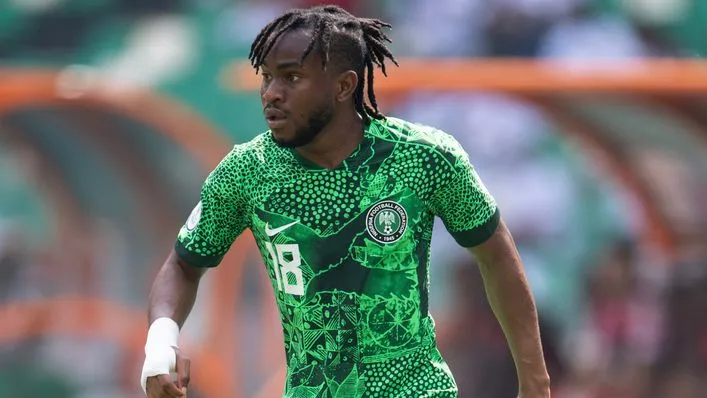
Express FC’s decline from Uganda Premier League (UPL) champions to a struggling side is rooted in a series of factors, including administration instability, financial hardship and disconnect within the club.
For years, it was known that Express was the most supported club in the country. Today, they play matches almost before empty terraces. The club has made changes by replacing club chairmen, chief executive officers (CEOs), coaches and players alike, but it has not yet yielded the desired results.
The league title-winning season (2020/2021) and the historical winning of the Cecafa Cup title (2021) were known for their strong work ethic, togetherness and financial muscle, especially from club chairman Kiryowa Kiwanuka.
However, the club has failed to build on such success; the club is just living on handouts. The team is struggling to honour league games due to lack of necessary funds. Since the 2020/2021 season when Express lifted the league title, the club has failed to finish among the top five.
For example, in 2021/22 (6), 2022/2023 (10), 2023/24 (10) and 2024/2025 (9). Wasswa Bbosa, the man who guided the club to both the league and the Cecafa Cup, was sacked and replaced by his assistant James Odoch, who was also sacked in 2023.
Odoch’s assistant Hassan Mubiru was asked to handle the team until a new coach is appointed. In December, 2023, Alex Isabirye Musongola was appointed as the club’s new tactician. In March 2024, Isabirye resigned, citing poor club management.
He was replaced by Baker Mbowa, who was also sacked following the club’s poor results. Badru Kaddu was named the new coach. Kaddu, also known as KB, resigned and crossed to NEC, where he penned down a three-year contract. The club is currently coached by Jimmy Kintu, assisted by Richard Malinga.
HOW HAS EXPRESS REACHED HERE?
To get the genesis of Express woes, you have to go back to January 1997, when long-serving and most successful Express chairman Vincent Bbale Mugera announced his retirement as club chairman.
He announced January 28, 1997, as the date for the election of a new executive. This was like a bombshell, which seemed to have caught the club’s top organ (board of trustees) unawares. But Bbale and the board headed by Rabbi Mulondo agreed to push the polls to March 28, 1997.
On the polling day at Mengo SS, two candidates emerged, namely John Bagambe and Meddie Ssebaggala. Before the polls, there were calls from club faithful asking Bbale to change his decision and serve for another term, but he refused to budge.
Bbale is arguably Express’ best chairman, having guided the club’s second golden era (1990-1997), where the club won three league titles and four Uganda Cup trophies. When it came to polls, it was chaotic, which forced returning officer Hajji Abu Mayanja to postpone it to April 13.
In the meantime, a working committee headed by Rabbi Mulondo was appointed until the polling day. On the election day, both Bagambe and Godfrey Mukasa Tenywa stood down, leaving Hajji Ssebagala, who was out of the country, to sail through unopposed.
Upon his return, Sebaggala picked his executive, which had Godfrey Kirumira (Vice Chairman Finance), Bagambe (Vice Chairman Planning), Gen. Moses Ali (Senior Advisor), and Kavuma Kabenge (General Secretary), among others.
Ssebagala faced an uphill task, especially to unite the club faithful who were divided, and the club also faced financial hardship following the departure of GAPCO, which declined to renew its sponsorship with the club.
SEBAGGALA THROWS IN THE TOWEL
Things were moving well, and they won the 1997 Uganda Cup title. However, his absence from club’s matches was enough for the fans to ask him to resign. On December 20, 1998, Sebaggala officially resigned and handed the mantle to Kirumira, who was his number two.
Kirumira brought on board new faces on his executive, like Hajji Twaha Gwayivu, Eriya Bugembe, Gideon Byaruhanga, Edward Mperese, Sam Kiwanuka and Francis Buwule. Kirumira’s thirst for success saw him signing top players, including Hassan Mubiru, Ibrahim Buwembo, Andrew Mukasa and Mourice Sunguti, among others.
He also signed top coaches like Rashid Sedu, James Si’ang, Asumani Lubowa and Eddy May, among others, and he was tagged Perez, equating him to Real Madrid president Florentino Perez.
Though the club looked competitive, it won only the 2001 Uganda Cup title. Kirumira was accused of not convening the club’s Annual General Meeting for over five years. Though he was enjoying the support from the ordinary fans, he faced a big challenge from the club’s elites who wanted him to step down.
Sensing danger, Kirumira sacked a couple of officials from his executive, including Kiwanuka, Ssawa and Buwule. The sacked officials formed a pressure group known as `Express forever’, a group which formed to fight Kirumira’s leadership.
Kirumira finally yielded to pressure, and on October 29, 2005, he resigned, and Sam Kiryowa Kiwanuka (son of the founder, Jolly Joe Kiwanuka) took over the leadership. Kiwanuka failed to live up to the expectations, and he abandoned the club after 2006.
Since then, Express has been managed by well-wishers like Francis Ntalazi, Kavuma Kabenge (who guided the club to the 2011/2012 league title), Florence Nakiwala Kiyingi and Hajji Bulwadda.
It was in September 2018, when the club’s top organ appointed Kiryowa Kiwanuka as the new club chairman for three years. Kiryowa is credited for returning sanity to the club by creating structures.
He appointed Isaac Mwesigwa, who ran the club professionally. The board again handed Kiryowa another term, but this was a big challenge. He became elusive at the club’s matches since 2023.
Instead, he left behind his brother, Suubi Kiwanuka, to serve as club boss. Suubi’s challenge is funds, which has left the club on handouts. The club is currently left to CEO Sharaf Miiro, who is running the show.
So, unless the club’s faithful, like Prince Dr Kassim Kakungulu, Vincent Bbale Mugera, Kavuma Kabenge, Hajji Moses Kigongo, Kiryowa Kiwanuka, Henry Njuba, and Francis Buwule, among others, put their heads together and find a solution, Express might go into oblivion.



